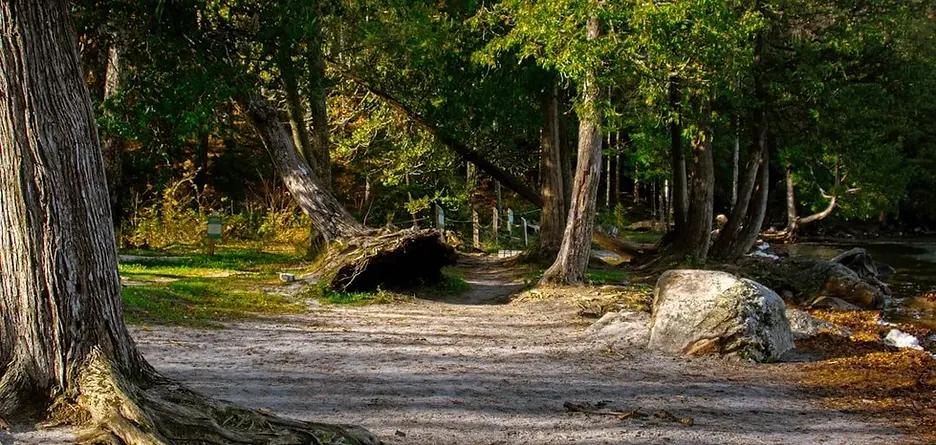
OUR SERVICES
Integrated Environmental & Cultural Resource Solutions
CHRIS delivers comprehensive cultural and environmental assessments to support responsible development. We help clients meet regulatory requirements, avoid delays, and protect historically and ecologically significant places—while keeping projects on track.
From early-stage planning to post-construction stewardship, we offer a full suite of services tailored to meet local, state, and federal expectations—including NEPA, Section 106, and SHPO coordination.
Rapid Resource Assessments (RRAs):
Our RRAs provide fast, desktop-based reviews of environmental and cultural risks to help developers, landowners, and real estate professionals make informed decisions early. For just $795 and up, you'll get a clear summary of red flags—wetlands, historic sites, cemeteries, tribal triggers, and more—delivered in as little as 3–5 business days
(Learn More Here)
Environmental Resource Services
We assess, document, and plan around natural resource concerns with a focus on practical solutions and regulatory clarity.
-
Environmental Impact Assessments (EIA)
Evaluate potential impacts of development on natural resources, communities, and ecosystems in compliance with NEPA and other federal/state requirements. -
Phase I Environmental Site Assessments (ESA)
Identify recognized environmental conditions on a site to support due diligence, real estate transactions, and redevelopment planning. -
Rapid Environmental Desktop Reviews
Provide quick, low-cost environmental screening using GIS, aerial imagery, and database searches for early project planning and grant applications. -
Species Protection & Landscape Analysis
Assess and map sensitive habitats and protected species to guide responsible design and avoid costly delays or regulatory violations. -
Watershed and Habitat Evaluations
Investigate watershed health, hydrological function, and ecological integrity to support planning, permitting, and restoration. -
Stormwater and Erosion Control Plans
Design and review practical strategies for managing runoff, reducing sedimentation, and protecting water quality during and after construction. -
Post-Construction Environmental Monitoring
Conduct ongoing assessments to ensure compliance with permit conditions, restoration goals, or ecological performance standards. -
Mitigation Planning and Report Preparation
Develop tailored plans to offset unavoidable impacts through conservation, restoration, or enhancement of nearby resources.

Cultural Resource Services
We identify, evaluate, and protect cultural and historic assets through thoughtful planning and expert documentation.
-
Cultural Resources Reconnaissance Surveys
Rapid site assessments to flag potential archaeological or historic resources early in project development. -
Phase I, II, and III Archaeological Investigations
Systematic investigations to identify, test, and recover cultural material in accordance with federal and state guidelines. -
Historic Property Surveys and Mapping
Field-based documentation and GIS mapping of historic buildings, districts, landscapes, and features. -
National Register of Historic Places Nominations
Research and write nominations to formally recognize and protect eligible historic properties. -
Section 106 and SHPO Coordination
Lead consultation processes with State Historic Preservation Offices to ensure legal compliance and project continuity. -
Mitigation Strategy Development and Reporting
Develop creative, meaningful mitigation plans—such as interpretive signage, oral histories, or preservation easements—to offset impacts to historic sites.

Community & Descendant Engagement
We build meaningful relationships with communities connected to the land, ensuring that cultural voices are represented and preserved.
-
Tribal and Descendant Consultation
Facilitate respectful communication with tribes and descendant communities to ensure their concerns and knowledge inform project outcomes. -
Oral History and Local Knowledge Documentation
Capture intergenerational stories, traditions, and place-based knowledge through interviews, transcription, and archival preservation. -
Historical and Archaeological Investigations
Partner with local communities to document and interpret sites through collaborative research, fieldwork, and narrative-building. -
Genealogical Research and Family Histories
Trace lineage, property records, and community ties to support repatriation, preservation, or commemorative work. -
Interpretation Planning and Commemorative Support
Develop interpretive signage, brochures, and exhibits that honor lived experiences and connect the public to place. -
Exhibit Planning and Design
Create temporary or permanent exhibits for museums, visitor centers, or public spaces that amplify marginalized voices and local history.

